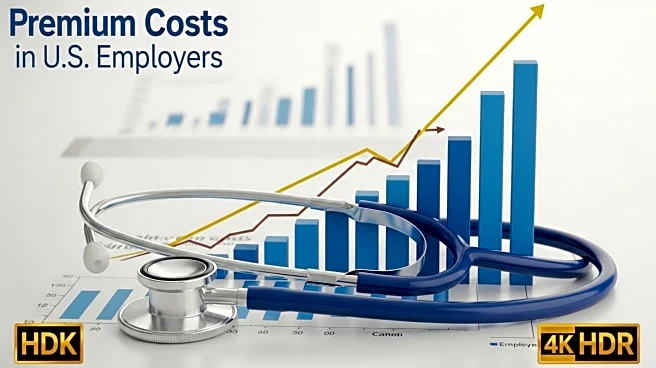What is the story about?
What's Happening?
Health insurance premiums in the United States are set to rise by the largest percentage in 15 years, according to a survey conducted by Mercer. The National Survey of Employer-Sponsored Health Plans indicates that employers are preparing for a significant spike in costs in 2025, driven by increased healthcare utilization and rising prices. The survey, which included over 1,700 employers, projects a 6.5% increase in total health benefit costs per employee in 2026, marking the fourth consecutive year of elevated growth. Factors contributing to this surge include advancements in medical science, provider consolidation, and the rise of virtual healthcare, which has increased accessibility and utilization. Employers are responding by implementing cost-cutting measures, such as raising deductibles and cost-sharing provisions, while also enhancing mental health benefits.
Why It's Important?
The anticipated increase in health insurance premiums is significant for U.S. employers and employees alike. Employers face mounting pressure to manage healthcare budgets, which may lead to higher out-of-pocket costs for employees. This trend could impact employee satisfaction and retention, as workers may struggle with increased financial burdens. Additionally, the rise in virtual healthcare and advanced medical treatments highlights the evolving landscape of healthcare delivery, emphasizing the need for strategic planning and adaptation by employers. The focus on mental health benefits reflects a growing recognition of the importance of employee well-being in overall business performance.
What's Next?
Employers are expected to continue exploring strategies to mitigate rising healthcare costs, including the adoption of high-performance network plans and increased emphasis on managing high-cost claims. The upcoming open enrollment season will be crucial for employees to carefully evaluate their health plan options, balancing premium costs with cost-sharing features. As healthcare costs continue to rise, the industry may see further innovations in healthcare delivery and payment models, potentially influencing future policy decisions and employer strategies.















